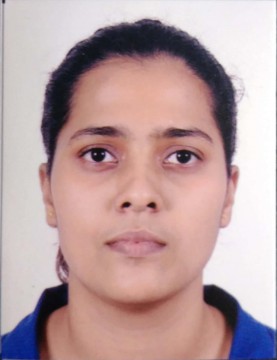Overview
Biochemistry is a branch of science that deals with the study of vital biological processes that occur within living organisms. Essentially these are chemical reactions that are occurring within us. Often described as: 'The Mother of Life Science'. In this discipline we try to explore and understand the chemical and molecular basis of change that occurs in living cells. Biochemistry has enormous contributions in the fields of medical & health sciences, agriculture, with applications in the areas of protein chemistry, genetics, endocrinology, disease pathology & diagnostics, drug design, food biochemistry, as well as nutritional biochemistry. The impact of understanding various processes that occur in plants have also had enormous implications in the production of genetically modified superior varieties of crop plants.
Students that take up the B.Sc. Program in Biochemistry are expected to be fluent in the fundamentals of the vast content that encompasses the content; at the same time, at the end of the course they will be able to exhibit certain levels of the learning outcomes. The skills given to the students will help them to develop and choose a career that caters to their interests as well as future prospects.
The curriculum of the Biochemistry course at Parvatibai Chowgule College of Arts & Science has been developed with a total of 8 core courses and 16 elective courses all of which have theory and practical components.
Vision & Mission
Biochemistry is a branch of science that explores the plethora of chemical processes within and related to living organisms. It encompasses the science that brings together biology and chemistry. The course is for students who have a background in Biology and a basic understanding of how chemical reactions occur. The course also caters to students who are interested in a career in research or industry.
The department offers foundation courses in Protein Chemistry, Cell Biology, Biophysics, Immunology, Metabolism of Biomolecules, and Molecular Biology.We also offer elective courses in Endocrinology, Genetics, Pharmacology, Genetic Engineering, Nutritional Biochemistry as well as Human Physiology. Each course has a practical component where students gain hands-on experience of experiments based on concepts learned in theory.
The department has expertise in the areas of Microbiology, Protein Chemistry, Enzymology, Genetics, Plant Biochemistry, Food, and Industrial Biochemistry as well as sophisticated instruments for analysis like a quantitative estimation of biomolecules and DNA visualization.
The infrastructure includes a microbiology laboratory, sterile culture facilities, and basic instruments for hands-on training for the students. Online resources are available through "CLAAP" and more recently provided to the students via Google Classroom. We have a compulsory internship programme where students work for a minimum of four weeks with pharmaceutical companies, pathology laboratories, research institutes, and production units.
Since this is a diverse field, the faculty of the department take pride in the fact that they provide career counseling to students throughout their degree programme. As part of the research component of this course, students undertake a six-month project which they are encouraged to present at National Seminars and to further publish their data in peer-reviewed journals.
While the department endeavors to provide a fundamental theoretical backbone, we expect our students to be able to apply these concepts over and above what we teach them, thereby developing analytical skills.
We want students who are interested in learning new concepts, comfortable in a laboratory setting, and most importantly with patient disposition.
Department Faculty


 PCCAS Login
PCCAS Login  DHE Samarth Login
DHE Samarth Login

